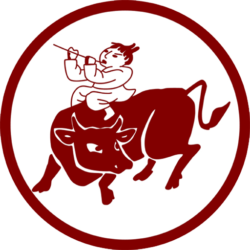By Bill Palmer
This article describes the self as a community of sub-personalities. A sub-personality is a distinct and relatively autonomous part of a person that emerges in response to specific psychological situations or contexts. We will explain how the way in which these parts of the self are used in psychotherapy downgrades the role that the body plays in our sense of self. We will explain how the Qi functions of East Asian medicine can be viewed as body-based subpersonalities and how seeing these functions as ‘internal people’ transforms Shiatsu therapy.
The Ming and Xing are the foundation of the ancient Chinese System of Internal Alchemy or Nei Dan. They are profound concepts which give direction and purpose to life and many texts confirm that working with Qi will not be effective unless you take account of the Ming and Xing.
In the 1980’s Bill developed a theory of meridians which explained them as pathways along which movement developed in babies. Movement development takes place in well defined phases which focus on the four meridians in each family. Bill describes these phases and shows how each family forms a collaborating group of Qi functions which guide development not only in infants but later in life.
This article describes how meridian functions naturally fall into three groups, which have come to be called ‘Meridian Families’. Bill describes these phases and shows how each family forms a collaborating group of Qi functions which challenge us to develop and mature throughout life.
This article is a memoir recalling Bill’s early training in Aikido and Shiatsu and describing how the principles of Aikido formed a foundation for the development of Movement Shiatsu.
This article describes the deeper functions embodied in the connection between Kidney and Heart, which is called the Shao Yin, and between the Bladder and Small Intestine, called the Tai Yang. As with the other two groups of four meridians, these form a connected family all of which are concerned with intention, motivation and action. The two divisions also connect the Water Element to the Fire Element, meaning that they transform unconscious motivations into conscious intention and channel this energy into actions which align with the spirit.
The Six Forms of Touch is a system of training that emphasises the WAY in which you contact a person rather than the techniques or meridians you choose to work with. The forms of touch are not treatment techniques. By this I mean that they are not techniques to be used when there is an imbalance in a particular area. Instead they describe six different dimensions of therapeutic contact and a good therapist will be using all of them. However, if there is an imbalance in one aspect of a person’s energy, then one should be clear that your contact with the client includes the form of touch associated with it.
Continuing with the forms of touch related to the Jue Yin and the Shao Yang which have to job of facilitating the Inner Community using principles very like those which work for groups of people. These forms of Touch are especially useful for working with chronic conditions, disability and old age where the focus is not on cure but on dealing with the condition in a kind and harmonious way.
Instead of seeing disability as a problem, Movement Shiatsu views the way in which people use their bodies as their successful ability. Starting from ability gives the client a sense of empowerment and allow them to explore and challenge themselves without being a victim to their condition.
Since humans are social creatures, we are concerned with pleasing and copying other people. In the process, we can lose contact with what our own body wants. Many illnesses and injuries are caused by not listening to our body and forcing it to do something that it has not ‘agreed to’. In other words, the “Inner Community” of bones. muscles, organs and cells is ruled by an autocratic mind rather than being a democracy. This article explores how to help the internal community to be more democratic and how that change in internal politics might be necessary for peace in communities of people.
A description of the Three Burners and how they are related to the aspects of the Self described by psychotherapy.
This article explores how Movement Shiatsu views Kyo and Jitsu. The original Chinese or Japanese characters for these words have a much deeper meaning than the simple translations of Empty and Full. The article shows how the deep meanings change the approach to treatment.
The model underlying Movement Shiatsu is that each part of the body is an autonomous agent, like a little person. This attitude changes the way in which you touch and helps each part of the body to speak in the first person, expressing what it needs in a very precise way. Bodywork can be seen as group therapy for the body.
Shiatsu as a way of Personal Development
Bill Palmer’s research during two decades of working with babies suggests that meridians are the innate pathways along which babies learn intentional movement. This article and the next were published almost 30 years ago so do not include later research showing the relevance of the Six Divisions in Child development, but they do explain how certain meridians are explained in a very detailed way by the sequence of movement development.
Bill Palmer’s research during two decades of working with babies suggests that meridians are the innate pathways along which babies learn intentional movement. This article and the last were published almost 30 years ago so do not include later research showing the relevance of the Six Divisions in Child development, but they do explain how certain meridians are explained in a very detailed way by the sequence of movement development.
The Development of the Tai Yang and Shao Yin
Energy needs to be embodied before change takes place. Sometimes working with meridians is not enough to help someone to embody their energy. This article describes how Experiential Anatomy can be used to help.
This article introduces a method of training for ageing people, which can be started before old age, which develops three Yin capacities: Radiance, Equanimity and Benevolence. These capacities are aspects of the Tai Yin, Shao Yin and Jue Yin energies and do not decline with age. With their development, the ageing person not only is rescued from many of the physical conditions of old age but also grows into a state which is still valued, still useful and still attractive to other people.
Babies learn to inhabit their bodies and at the same time develop consciousness. So the physical development provides the foundation for emotional and mental experience. This interview describes the historical development of Movement Shiatsu as an exploration of the body-mind connection.
The Six Channels are maps of whole body coordination. Each channel is made up of two meridians but they perform an holistic function that is greater than the sum of their parts.
How concepts such as balance and health can actually interrupt the process of an individual therapy
How the Six Divisions represent dynamics in the personality as well as the physical movement development
A case history about working with a child with cerebral palsy, and thence working with the parents as well
Another case history which describes the process of Movement Shiatsu working on something which would normally be the province of psychotherapy. This case history also explains the principles behind the work and is the first time I gave a satisifactory answer to the question ‘What is Energy?’
A review of the scientific research into biological organisation and it’s reflection on the oriental idea of Qi
A look at the etymology of these much used words and a deeper look at their meaning
What does Experiential Work mean and how can it enliven and enrich Shiatsu and teaching.
An exploration of the role of the Liver Energy in therapy and an explanation of the HUN
An old article published in the Journal of Chinese Medicine 1992 describing Movement Shiatsu
Movement Shiatsu by Henry McGrath
A graduate’s view of Movement Shiatsu training

